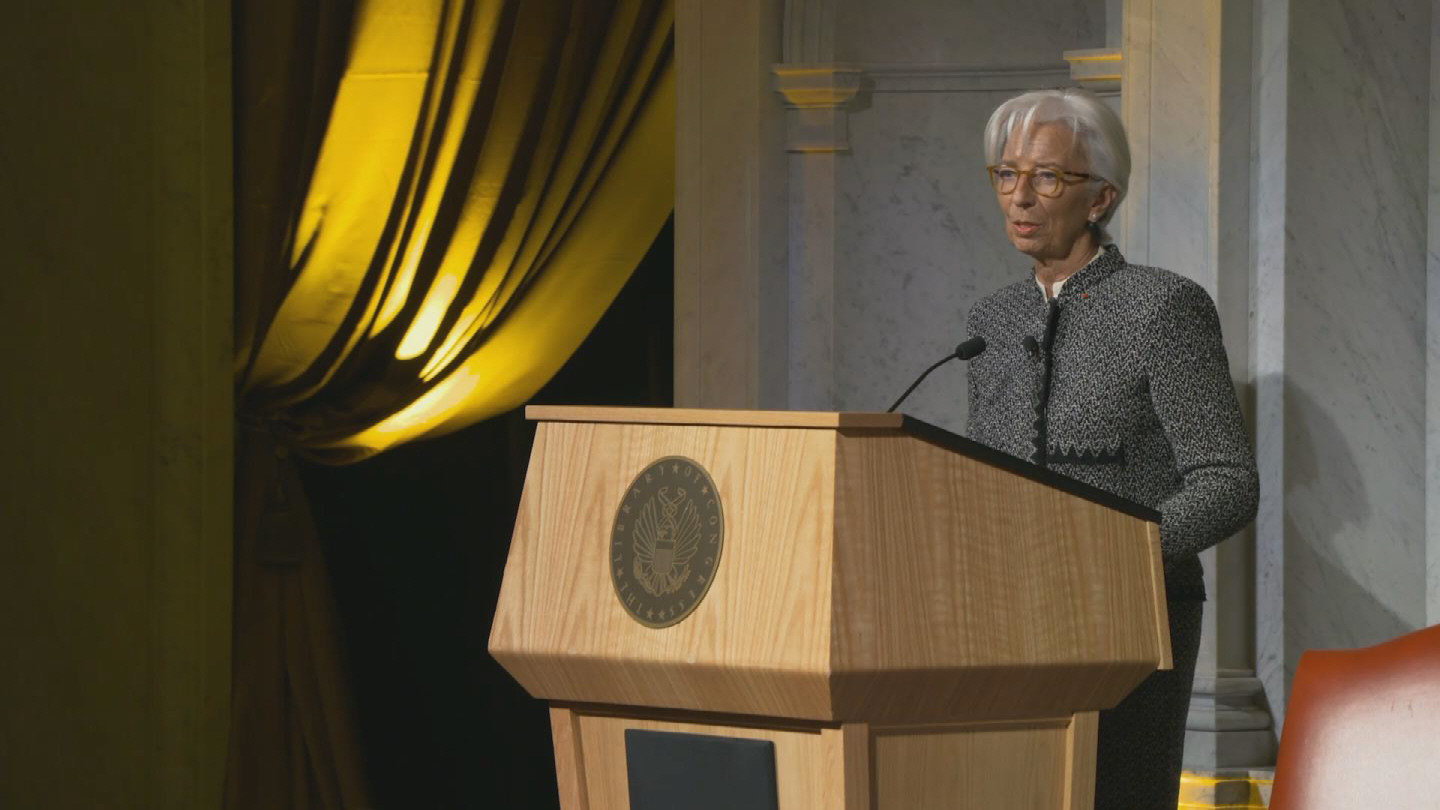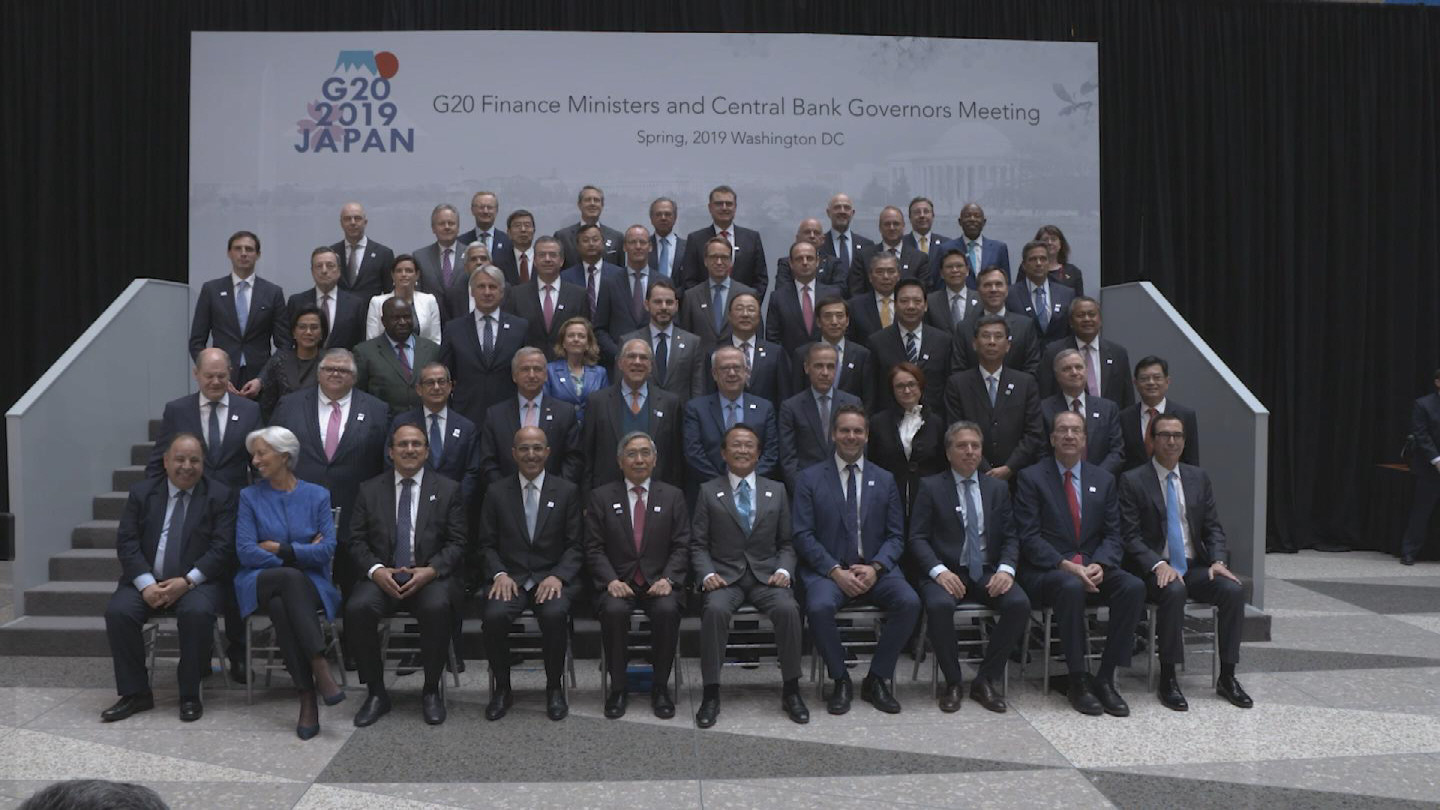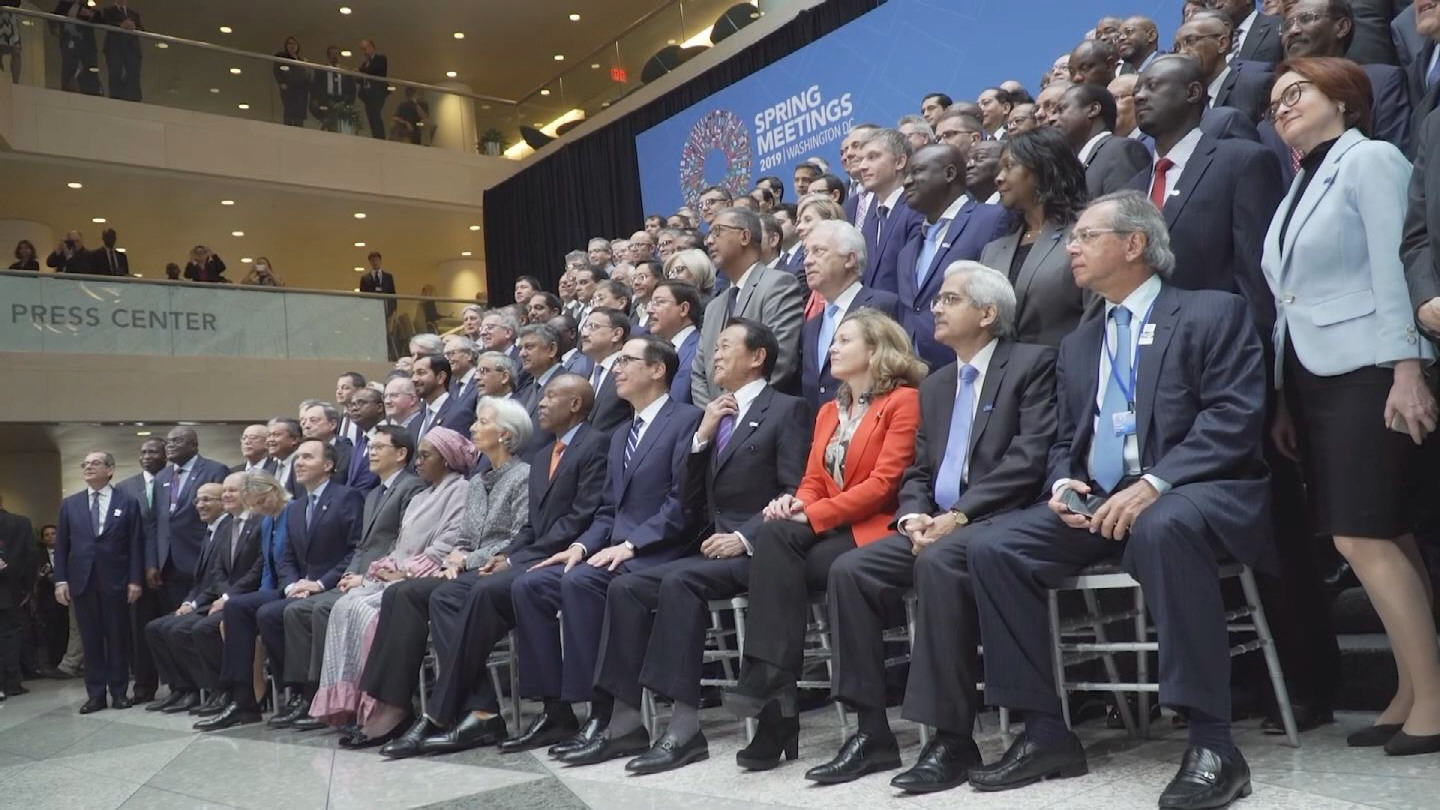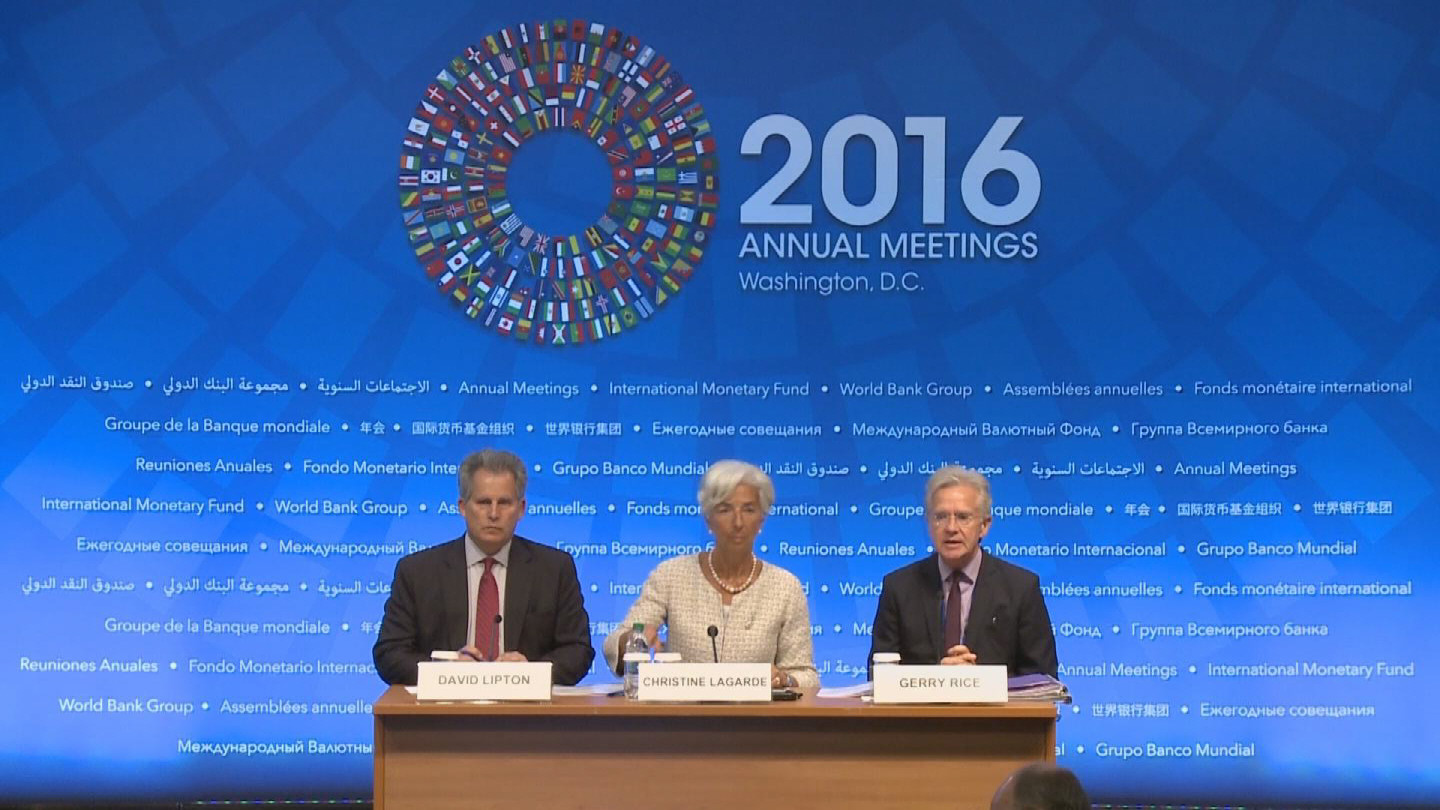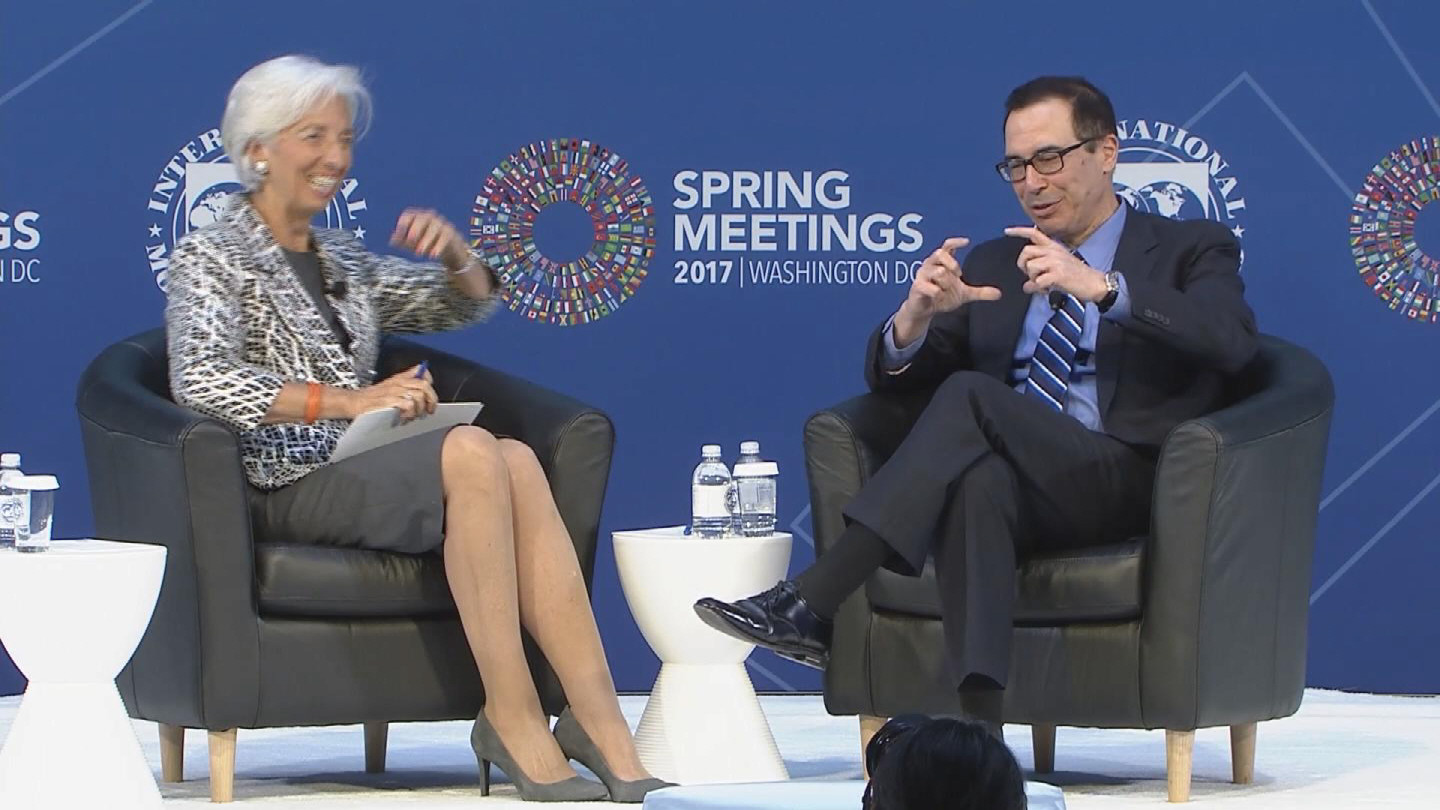IMF / GENDER MACROECONOMICS
Download
There is no media available to download.
Share
STORY: IMF / GENDER MACROECONOMICS
TRT: 2:04
SOURCE: IMF
RESTRICTIONS: NONE
LANGUAGE: ENGLISH /NATS
DATELINE: 20 APRIL 2017, WASHINGTON DC, USA
1. Wide shot, panel
2. Close up, moderator Sara Eisen of CNBC
3. Wide shot, panel
4. Med shot, panel
5. SOUNDBITE (English) Muhtar Kent, CEO, Coca Cola:
“Women entrepreneurs in a community strengthen that community. When communities get stronger, our business gets stronger. It’s just a simple algebra that works.”
6. Close up, Eisen asking a question
7. SOUNDBITE (English) Siv Jensen, Minister of Finance, Norway:
“Norway pioneered the use of gender quotas for corporate boards. There are different opinions on that. But, nevertheless, the legislation passed in 2003. We reached the goal in 2008. So, we now have 40 percent female representation in publicly listed companies.”
8. Wide shot, panel
9. SOUNDBITE (English) Amina J. Mohammed, Deputy Secretary General, United Nations:
“I think you just have to be creative and open up those spaces to be able to find the solutions because you believe the women is an asset and you must invest in her to get the returns. You won’t have the returns without that and I think – practical solution.”
10. Close up, Eisen asking question
11. SOUNDBITE (English) Christine Lagarde, Managing Director, International Monetary Fund (IMF):
“90 percent of countries in the world actually have in their legal system, sometimes in their constitution, provisions that discriminate against women. Now some people say, ‘Story of the past, it’s O.K. the law doesn’t really matter,’ Well, the law actually matters a lot.”
12. Med shot, Eisen, Mohammed and IMF Managing Director Christine Lagarde
13. SOUNDBITE (English) Christine Lagarde, Managing Director, International Monetary Fund (IMF):
“The fastest road to inclusive, diversified, less unequal growth is women.”
14. Close up, Eisen thanking panelists
15. Wide shot, close of discussion
Although the economic benefits of female economic empowerment and the policies that support its advancement are well-known, much remains to be done to deliver on the goal of a meaningful and lasting transformation.
The IMF and CNBC sponsored a panel titled “Gender and Macroeconomics: What’s Next?” in Washington, DC on Thursday (20 Apr).
The panelists discussed the practical measures needed, look at what works and what does not, and consider what each committed partner—in government, the private sector, and beyond—needs to do to drive change.
Muhtar Kent, the Chairman and CEO of Coca-Cola Company, pointed to their 5by20 program that is aimed at empowering 5 million women entrepreneurs worldwide by the end of the decade.
“Women entrepreneurs in a community strengthen that community. When communities get stronger, our business gets stronger. It’s just a simple algebra that works,” he said.
Norway’s Minister of Finance Siv Jensen pointed to the role that quotas can play in breaking the “glass ceiling” for women in the public and private sector.
“Norway pioneered the use of gender quotas for corporate boards. There are different opinions on that. But, nevertheless, the legislation passed in 2003. We reached the goal in 2008. So, we now have 40 percent female representation in publicly listed companies,” said Jensen.
UN Deputy Secretary-General Amina Mohammed pointed to her own story of being a groundbreaking woman entrepreneur in Nigeria as an example of structural and cultural barriers that need to be removed.
“I think you just have to be creative and open up those spaces to be able to find the solutions because you believe the women is an asset and you must invest in her to get the returns. You won’t have the returns without that and I think – practical solution.”
IMF Managing Director Christine Lagarde said that her biggest surprise when looking at impediments to women in the workplace was the legal obstructions and restrictions engrained in nation’s legal codes, even in developed nations.
“90 percent of countries in the world actually have in their legal system, sometimes in their constitution, provisions that discriminate against women. Now some people say, ‘Story of the past, it’s O.K. the law doesn’t really matter,’ Well, the law actually matters a lot,” she said.
Lagarde said women offer a solution to some of the most pressing economic problems of our time.
“The fastest road to inclusive, diversified, less unequal growth is women.”
